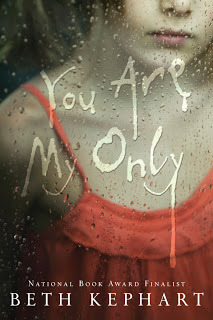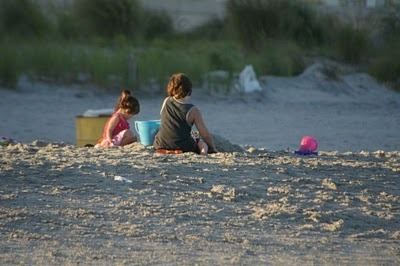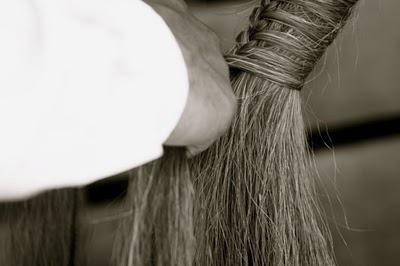Beth Kephart's Blog, page 222
September 21, 2011
Be real with me
 A few days ago, a publisher of an online magazine got in touch. A brief email conversation ensued, and then he posed this question: Why didn't we just pick up the phone and talk?
A few days ago, a publisher of an online magazine got in touch. A brief email conversation ensued, and then he posed this question: Why didn't we just pick up the phone and talk?I am leaning more and more in that direction these days. Just pick up the phone and talk. Just walk down the street and say hello. Just suggest that, when my husband and I stop our work mid-day to grab a quick bite to eat, we are on a date, we are high with romance, we are not merely taking care of one more thing, but living the moment together.
Maybe it's because my arms have been numb for weeks, and because typing hurts. Maybe it's because I cannot for the life of me understand the new Facebook, and I'm not even inclined to try. Maybe it's because I'm increasingly interested in being real with people who are real with me—and stepping back from those who might view my access or my passion as a stepping stone, a gateway, a thruway. Maybe the clock is ticking, and maybe it's time to push back a little from this big screen and pick up the phone and talk.
(Or, as aquafortis makes a good point here, just and simply be.)




Published on September 21, 2011 14:49
The You Are My Only Treasure Hunt Continues
 Readers of this blog know that a You Are My Only treasure hunt is under way. The hunt goes something like this: I've written five guest posts about the making of this book. Those posts have now begun to pop up in the blogosphere. Your job (should you choose to accept it) is to find those five entries and then post them collectively on your own blog. Send the link to me, in a comment box on my blog, and your name will be entered into a drawing.
Readers of this blog know that a You Are My Only treasure hunt is under way. The hunt goes something like this: I've written five guest posts about the making of this book. Those posts have now begun to pop up in the blogosphere. Your job (should you choose to accept it) is to find those five entries and then post them collectively on your own blog. Send the link to me, in a comment box on my blog, and your name will be entered into a drawing. Two winners will be selected. Each will win these two things: A signed copy of You Are My Only AND a critique (by yours truly) of the first 2,000 words of a work-in-progress. As many of you know, I teach memoir at the University of Pennsylvania and served as the inaugural readergirlz author in residence. I have written in multiple genres and critique adult fiction for major U.S. newspapers. Your manuscript can, I am hinting, be in any genre, save for a screenplay, about which I have absolutely zero expertise.
To make this contest a little easier, I am reprinting here the first paragraphs of the two entries that are now floating out there in the virtual world.
The first, titled "The (furious) metamorphosis of Sophie," is hosted on a blog that has the clever subtitle "Looking better in black since 1234." It appeared on September 9th, and it begins like this:
Several years ago I began to write a novel for adults that had a certain Sophie as its focus. She was in her late thirties and her boyfriend, Vin, had recently left her. She was alone, a writer, and trying to piece together the unresolved oddments of her past. Strange things were being left on Sophie's doorstep—signs, masks, even a pot of soup—and the only thing that Sophie knew for sure that she was being lured to an abandoned asylum on the other side of the woods by people she wasn't certain she could trust.The second, titled "Opening the door to Cloris and Helen," appears today, September 21, and is hosted by a blogger whom we all consider to be our friend. It begins like this:
I'll be honest. Cloris and Helen are two characters who have been living with me for more than a decade. That's right. I carried these two dear souls, these more-than-best-friends ladies, through a variety of novels I'd been writing. They were bird-obsessed in one book (not so strange, since all of my books have at least one character who is obsessed with birds). They were digging a huge hole beneath their house in another. In an early version of the book that became You Are My Only, it was Cloris who had been committed to the asylum.
Two posts up and three to go. I'll be keeping you apprised as the hunt continues.
Finally, today, I would like to thank the ever-dear Lorie Ann Grover for her beautiful words about You Are My Only. I had the privilege of working with Lorie Ann and all the Readergirlz not long ago, as the author in residence. Happy times. Thank you, Lorie Ann.




Published on September 21, 2011 02:42
September 20, 2011
Be Ruthless
 Look, I'm not going to lie (as my son often says). I want to think I've written 89 perfect and contiguous pages of the novel that has lately sat with me (weighed on me). I want to tell myself. Hey. Good job. Only two-thirds of the book to go. I've already written this book twice, after all. I've already done the time. I've celebrated completion on two separate occasions, only to have the victory medal stripped from my scrawny neck.
Look, I'm not going to lie (as my son often says). I want to think I've written 89 perfect and contiguous pages of the novel that has lately sat with me (weighed on me). I want to tell myself. Hey. Good job. Only two-thirds of the book to go. I've already written this book twice, after all. I've already done the time. I've celebrated completion on two separate occasions, only to have the victory medal stripped from my scrawny neck.Perhaps, my agent said.
Perhaps you should consider, an editor said.
And, yes, sure, on a chapter by chapter basis (the chapters read in isolation from each other) these brand new 89 pages work pretty well.
Put the chapters together, though, and you have a momentum problem. You have a stutter stall of tension. I have tried to pretend that such problems don't exist. I have tried to look ahead to page 90. Foist myself upon it.
But the truth is the truth, and you aren't a writer if you can't be ruthless with yourself. At 3 AM this morning, I tossed 40 some pages that took me weeks to write.
I cried a little.
Then I turned the music on and danced.
When critics wonder, as some critics will, why books take so long to write, they should perhaps consider the buckets and buckets and buckets of words that get tossed to the virtual floor.




Published on September 20, 2011 05:45
September 19, 2011
Pam van Hylckama Vlieg. Bookalicio.us. That's All I Can Say.
 I have been the recipient of extraordinary kindness. My eyes are full.
I have been the recipient of extraordinary kindness. My eyes are full. These words were said.
That's all I can say.
You'll understand.




Published on September 19, 2011 19:27
An Interview with Anne Enright
 Readers of this blog know that I have, in the last month or so, twice brought Anne Enright's new novel, The Forgotten Waltz to this virtual page, once to reflect on Enright's bright capacity with first words and once to review the book in total. Readers also know what a huge fan I am of The Gathering, and of writers who write as fiercely and boldly and still beautifully as Enright. Today, and without further ado, I bring you this conversation that Anne Enright graciously agreed to conduct—over email. I asked about that beginning. I asked about criticism and joy. I find her answers to be as astute and smart as her books have always been.
Readers of this blog know that I have, in the last month or so, twice brought Anne Enright's new novel, The Forgotten Waltz to this virtual page, once to reflect on Enright's bright capacity with first words and once to review the book in total. Readers also know what a huge fan I am of The Gathering, and of writers who write as fiercely and boldly and still beautifully as Enright. Today, and without further ado, I bring you this conversation that Anne Enright graciously agreed to conduct—over email. I asked about that beginning. I asked about criticism and joy. I find her answers to be as astute and smart as her books have always been.The Forgotten Waltz begins with these words: I met him in my sister's garden in Enniskerry. That is where I saw him first. There was nothing fated about it, though I add in the summer light and the view. I put him at the bottom of my sister's garden, in the afternoon, at the moment the day begins to turn. It's a simple-seeming beginning, but it is not. It is a tempo already firmly established. It is a series of small contradictions, nuance and shadow. Were these the first words that you wrote for this book? Does story take hold of you first, when you are writing, or is something else (the sound of a song, for example) at work?
Every book I write I am asked about beginnings, and I look back at my files and am no closer to an answer. Whatever way I begin, it is not large. I don't sit at the keyboard like a mad pianist about to launch into a Beethoven sonata (neither did Beethoven, for that matter). I pootle along. I rearrange things. I write something small and tuck it away. The 'first words' you read have been written and rewritten many times, as have all the subsequent words in the book. The trick is to keep them fresh. I think I did know what I wanted to write about - I knew a fair amount about Gina and Seán. But, at the beginning of the book, Gina does not know - or not yet. I wanted to catch that sense of 'nearly knowing'. My ideal is a text that that holds a sense of movement and ambiguity. All the fun, for me, comes from finding the right tone.
You are interested, you have indicated in previous interviews, not in the absolute good or bad of your characters, but in the arrangement and consequences of their flaws. What have you gained, as a writer, by keeping your eye trained on personal fault lines?
I think it is a more honest way to proceed.
In your books, time is fluid. It is the stillness of snow. It is the rapid chaos of regret. It is leaning forward, trailing back. In Waltz, Gina is 32 then 34 then 32 again, and Evie is a child and then a teen and then she is only a child again. How do you manage all of that, keep it straight in your own mind? How much do you already know about the history of your characters when you finally sit down to write your books?
I know a fair amount about my characters, and find out more along the way; the how and where of it. The Forgotten Waltz walks a pretty straight road compared to The Gathering, but actually, both books tell a very simple story about how we change. The line of a story is different from the line of a life. I always know where I am emotionally in a book.
How do you suppose your background in television affected the way you approach the page?
Well, that was all a long time ago. I remember I went, with a reporter, to cover the fall of the Berlin Wall in November 1989. We talked and listened and shot footage and drew the large conclusion that this event would not lead to the reunification of Germany but to a new kind of socialism in the East. We weren't the only ones saying this at the time, this was the media concensus. But I found it hugely interesting to be proved wrong on that one: it exposed my preconceptions, my prejudices, and my inability to see or hear what was in front of me (in the taxi, the local radio was playing the banned fourth verse of the national anthem, a pretty damn shocking fact that I managed to ignore). Being right is boring. It tells us nothing. The world is full of people being right. I thought there was room for someone who did not make that claim, and that a book was the best place to do this.
You have said that your next book will likely be written in the third person. What do you sacrifice when moving away from the first person? What do you hope to gain?
I think, with Gina, I have gone as far as I want to go with whatever this is: the way my characters annoy the reader, the way a friend annoys you, even though - or because - you like them so much. People either get it, or don't, which is fine by me. But I just want to open up, creatively. I mean I just want to keep opening. That is part of the impulse to write: that gesture. It is also what happens when we have a physical book in our hands. We open it. Wonderful.
How much time goes by between the finishing of one book and the start of another? How do you clear your mind for the next thing?
There is a time and tide in this. No matter how much I fuss or push, I start writing the next book about a year after the last one is published.
Does writing make you happy?
I really think it does, yes.
Do you care what critics think?
Critics are like mosquitoes. It's worse if you scratch.




Published on September 19, 2011 08:59
Write Long, Write Short? Write More or Less?
 The ever-provocative Dwight Garner opines about the productivity of Important Novelists in today's New York Times, expressing a desire for work that yields "heat as well as light"—and a frustration with "the long gestation period [that] is pretty typical for America's corps of young, elite celebrity novelists." Says Garner (who cites Eugenides, Franzen, Tartt, Chabon, and David Foster Wallace among the slower working novelists):
The ever-provocative Dwight Garner opines about the productivity of Important Novelists in today's New York Times, expressing a desire for work that yields "heat as well as light"—and a frustration with "the long gestation period [that] is pretty typical for America's corps of young, elite celebrity novelists." Says Garner (who cites Eugenides, Franzen, Tartt, Chabon, and David Foster Wallace among the slower working novelists):Obviously, some of this is about personal style. There have always been prolific writers as well as slow-moving, blocked, gin-addled or silent ones. It's worth suggesting, though, that something more meaningful may be going on here; these long spans between books may indicate a desalinating tidal change in the place novelists occupy in our culture. Suddenly our important writers seem less like color commentators, sifting through the emotional, sexual and intellectual detritus of how we live today, and more like a mountaintop Moses, handing down the granite tablets every decade or so to a bemused and stooped populace.The economics of novel writing (how many must teach, for example, to survive) and the tugs on a novelist's time (book tours, interviews) clearly, Garner notes, run interference in a writer's life. It's likely that other things are also to blame—life itself, for example, by which I mean the need for a writer to live deeply so that he or she might know even more deeply. Then there are the demands of research—how long, one wonders, did David Foster Wallace have to steep himself in the arcania of tax code before he could even begin to find the story inside The Pale King?
As I read Garner's piece, I reflected—as I often do—on my own "productivity." I published my first book in 1998; by the end of next summer, with the publication of Small Damages with the rocking house Philomel, fourteen of my books will sit across the room from me on the shelf.
Some would categorize that effort as prolific. In fact, I feel anything but. I may have published my first book in 1998, but I was writing long before that, and many of my books—Small Damages being a prime example—went through ten years of work, more than eighty drafts, and two genres before it became the story it was always meant to be. Still Love in Strange Places (W.W. Norton), published as a memoir, was for a decade a novel about El Salvador before I spent three years turning the fiction into fact. You Are My Only, which will launch in a month, was three very different books (written for adults) before I wrote it as a young adult novel. And I am, at this very moment, utterly overhauling a novel for adults that I was so sure was cooked to order six months ago. I am, in some ways, starting from scratch.
Writing has never been, for me, a straightforward process. Publishing has been anything but. I am trying to suggest that as writers we work and work (when time allows, when the day job on occasion eases up), but we rarely control the outcome itself. The story comes on us, at us. It dawns, it reveals, it retracts. It's there for a moment, and then it scuttles away, and as much as we would like to put ourselves on a publishing schedule, our imaginations are countries unto themselves.
Today I wake, for example, to a scene that has eluded me for weeks. The same darned scene. The same patch in the same woods. Something happens here. A single tag of dialogue will determine just what. I'd like to say that I'll have the answer by early this afternoon. I know my imagination better than that.




Published on September 19, 2011 04:17
September 18, 2011
The Grief of Others/Leah Hager Cohen: Reflections
 There are so many ways to tell a story. That much is obvious, so fatefully true. Authors have to decide—over and again, they decide—whose story they are writing, how much to keep on the page, where knowing must cede to suggesting, how time will be cordoned off and bent, how perfectly or imperfectly the tale will end, how many hearts will break.
There are so many ways to tell a story. That much is obvious, so fatefully true. Authors have to decide—over and again, they decide—whose story they are writing, how much to keep on the page, where knowing must cede to suggesting, how time will be cordoned off and bent, how perfectly or imperfectly the tale will end, how many hearts will break.Yesterday afternoon and early this morning I have been reading Leah Hager Cohen's new novel The Grief of Others (Riverhead). I have been thinking about structure, detail, illusion, and the lived life that allows this kind of realist fiction to be written. I have felt, as I always feel when reading any of Cohen's books, a great affinity for this author who puts so much of her heart and seeing into the books she writes.
Grief is jammed with sensual beauty, long, tumbling passages of spectacularly specific insight into not just the who of Cohen's characters—a husband and wife, their two children, a young man, a young woman, and a big loving dog—but the what of their lives. Ricky, the wife and mother, is a "quant"—a financial engineer. Husband John, employed by a college, is a stagecrafter, the sort of man who had seduced his wife by giving her access to the magic of theater: "how you'd mix perlite (the tiny white balls in potting soil) with paint in order to bring texture to an interior surface; how you'd spray a little paint on the artificial flora, in order to pull it into the world of the show; how, for a big backdrop, you'd spray fixative on charcoal, then tint it and build up a few layers of paint to give it the depth and richness of an oil painting." Both lose their third child just fifty-seven hours after he is born.
A prologue and five discrete book parts take us into this year of grief, and the trust and distrust that entombs it. Will Ricky and John's marriage (already unstable, despite much that is beautiful) survive? What will happen to the ten-year-old daughter, a thoughtful truant, who keeps reenacting the funeral that never was? What about Paul, the thirteen year old son, mired in middle school bullying? And what about Jess, John's daughter from another relationship, who shows up with worries all her own?
Cohen builds these characters—their relationships, their failures, their needs—attentively, gracefully, with great knowing. There's not even the hint of the fraudulent about this fiction. This is no straightforward tale, but one of deep dives and time bends, and I found it deeply moving.
You will also, I am sure, find Leah Hager Cohen's blog a work of beauty. I go there from time to time when I am in search of a quiet dwelling place—of words from a deeply thoughtful author who writes not just about her books and their journeys into the world, but about real life as a daughter, girlfriend, and mom.




Published on September 18, 2011 08:34
September 17, 2011
Two Heads Together: Announcing a Brand New Book Blog
 Earlier this week, during my Facebook travels, I took note of a bit of news—a long-time correspondent-reviewer-friend (Ed) was starting a blog with his beloved (Susan). Need to check that out, I said to myself, and in this blessed afternoon of quiet (I've been reading Leah Hager Cohen's The Grief of Others and hope to report on that tomorrow), I turned the computer on to see what Ed and Susan have been up to.
Earlier this week, during my Facebook travels, I took note of a bit of news—a long-time correspondent-reviewer-friend (Ed) was starting a blog with his beloved (Susan). Need to check that out, I said to myself, and in this blessed afternoon of quiet (I've been reading Leah Hager Cohen's The Grief of Others and hope to report on that tomorrow), I turned the computer on to see what Ed and Susan have been up to.Their blog is called Two Heads Together. I quote its purpose here: "...we're two avid readers who just happen to be librarians. We deal with books all day long and then go home to read. Geeks? Maybe. Lovers of books? Definitely. We've decided to begin this blog because we see so many wonderful books become orphans either because of lack of support from publishers or lack of word of mouth."
It's a lovely idea, I thought—to dedicate a blog to authors and books that might not be getting the Grand Tour treatment. I was so very moved, then, when I realized that the blog's first post was dedicated to a suite of books by yours truly, and includes a truly kind review of You Are My Only.
Reading this blog post brought to tears to my eyes; it also revived for me a memory: I was in Atlantic City, a one-night getaway with my husband, when an email came into Blackberry. It was from a man named Ed, who had been trying valiantly to get a copy of one of my earlier books for review. I am half blind at this point in my life and typed back what I'm sure was an error-rich message: Send your address; I'll make sure that you get one. It probably read like this: tbey sooe xxarrdss! I'll ,sru pfru u git 2.
Ed's been a dear friend in the book journey life ever since. And Susan, I feel I know you and have always valued you. Even if you did purportedly steal a copy of Dangerous Neighbors from Ed's own generous hands.
Thank you, both.




Published on September 17, 2011 14:03
September 16, 2011
Pamela Paul and Adam Gopnik talk about children's books and the people who review them
 The New York Times Book Review has lately been doing an extraordinary job of celebrating books written for children and young adults. There's more coverage. There's a greater sense of context. There's the feeling that all of this matters greatly.
The New York Times Book Review has lately been doing an extraordinary job of celebrating books written for children and young adults. There's more coverage. There's a greater sense of context. There's the feeling that all of this matters greatly. Take a look at the upcoming Pamela Paul essay on the back page—she's talking about Sendak, Silverstein, Dr. Seuss, and rule breaking. Listen, then, if you have the time, to the podcast slipped in alongside the story. In it Adam Gopnick and Pamela Paul discuss, among other things, the ideal reviewer of children's books; what qualifies anyone to have an opinion? Sam Tannehaus asks good questions. He elicits some really smart answers.
I just sat here in the dark listening to the recording all the way through.
I'm going to stand up now, feeling heartened.




Published on September 16, 2011 16:46
Amateur Gardener: A Poem

Amateur Gardener
I will have to decide from among the violets, which have gone asking for their rights; begging.
I will have to decide from among the too manyseeds.
There arebright leaves on every stem, tiny paddles of green, knots in the wet inch above the soil,
the husk of a cicada's song, a worm forlornin the shadow of a hawk.
The promise of rescue.




Published on September 16, 2011 06:38



